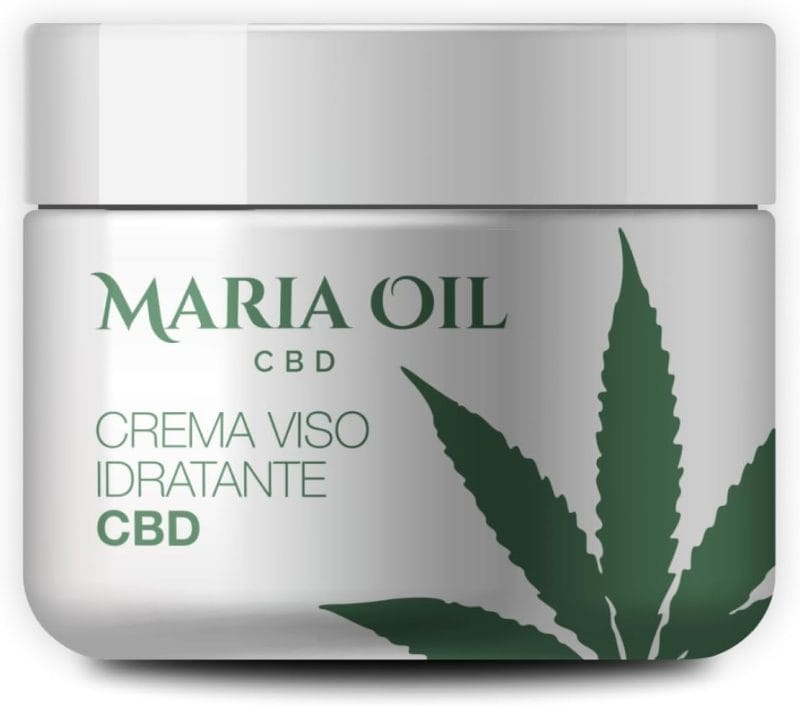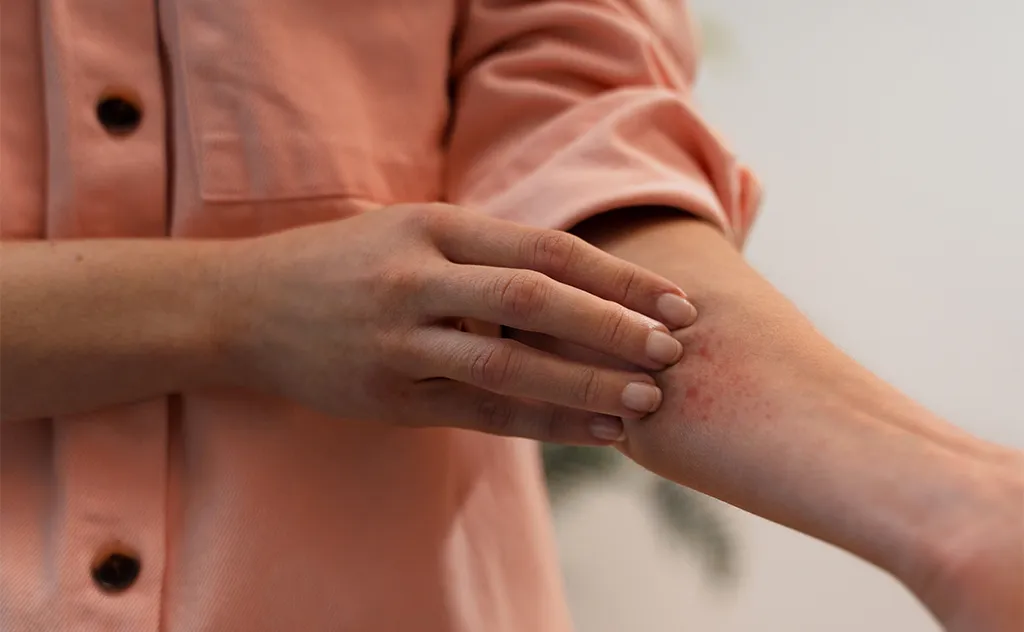Dermatitis, an annoying and often debilitating skin condition, affects millions of people worldwide. Although there are numerous conventional treatments, more and more are turning to natural solutions to alleviate their symptoms and improve the quality of their skin.
Have you already tried traditional treatments but experienced no relief? Or are you still looking for the right treatment and prefer to head straight for sustainable products?
From oatmeal baths with anti-inflammatory properties to soothing aloe vera gel, we will take a close look at the different natural remedies for dermatitis that nature provides.
The aim is to provide you with affordable and safe alternatives if you are looking for a more organic approach to managing dermatitis, incorporating practical advice in the context of a healthy lifestyle. Together we will discover how ingredients from nature can be valuable allies in caring for your skin through natural remedies for dermatitis, promoting skin wellness in a gentle and effective way.
-
Product on sale
 CBD Moisturising Face CreamOriginal price was: £27.00.£10.80Current price is: £10.80.
CBD Moisturising Face CreamOriginal price was: £27.00.£10.80Current price is: £10.80.
Types of dermatitis
Before talking about remedies, we must understand what we are dealing with in order to find the most suitable solution.
There are in fact different types of dermatitis:
- Atopic: commonly known as eczema, is a chronic form that manifests itself with dry skin, intense itching and redness, can occur at any age but is particularly common in children;
- Contact: results from exposure to irritants or allergens, such as metals, perfumes or latex, reactions can range from mild redness to more severe rashes;
- Seborrhoeic: characterised by desquamation of the skin, often located in areas rich in sebaceous glands such as the scalp (dandruff), face and chest;
- Eyelid: inflammatory condition involving the eyes, particularly the eyelids, and can cause considerable discomfort due to irritating symptoms and an itching sensation;
- Nummular: presents with coin-shaped lesions that cause itching and redness, the cause is often unknown but it is believed that it may be related to genetic and environmental factors;
- Nappy: mainly affects infants and occurs in the area covered by nappies, and is caused by moisture and skin irritation.
The management of dermatitis depends on its trigger and, as we shall see, treatments can range from topical remedies to lifestyle modifications.
Dermatitis symptoms
Just as the types of dermatitis vary, so do the symptoms.
However, there are recurring manifestations in all the forms mentioned above:
- Redness: the affected skin may become red due to inflammation;
- Itching: one of the most common symptoms of dermatitis, which may be mild or severe;
- Skin rash: spots, blisters or pustules may appear on the affected skin;
- Skin dryness: the skin may become dry, cracked and sometimes scaly;
- Swelling: in some forms of dermatitis, the skin may swell;
- Burning or pain: experienced by some people in the affected area;
- Formation of scabs or scales: if the dermatitis manifests itself in a particularly aggressive form;
- Warm skin to the touch: may be a consequence of the inflammation.
In addition, some symptoms may be more pronounced at certain stages of the disease or during periods of exacerbation.

How to treat dermatitis with natural remedies
What relieves dermatitis? The first instinct is to go to the pharmacy and buy the first remedy offered. You may have already done this, but not experienced great results or even side effects.
In recent years, we have realised how important it is to take the best possible care of our health. And what could be sweeter and more loving than solutions found in nature?
Dermatitis is a disorder that mankind has been battling with for a long time and, before laboratory drugs were invented, treatments had already been found. Let’s see together which natural remedies for dermatitis you can try today.
-
Product on sale
 CBD Moisturising Face CreamOriginal price was: £27.00.£10.80Current price is: £10.80.
CBD Moisturising Face CreamOriginal price was: £27.00.£10.80Current price is: £10.80.
Atopic dermatitis
How to treat atopic dermatitis with natural remedies? This is the most frequently asked question, as we are talking about the most common type.
For its treatment, you should look for ingredients known for their moisturising, soothing and anti-inflammatory properties, which can help reduce redness and itching.
Among the most powerful natural remedies are CBD, extracted from the cannabis plant, and aloe vera. The benefits of CBD cosmetics are many. They are rich in anti-inflammatory and moisturising properties, and can therefore flush the affected area, give it freshness and nourish it deeply.
Also very nutritious are coconut oil, rich in moisturising fatty acids, and evening primrose oil. The latter is obtained from the seeds of the primrose flower and is also rich in essential fatty acids, including gamma-linolenic acid.
Plants with beneficial but milder effects include calendula, used to soothe sensitive skin and promote the healing of skin lesions, and camomile, with calming properties for irritated skin.
Seborrheic dermatitis
Natural remedies for seborrhoeic dermatitis, related to inflammation of the sebaceous glands, must have an antihistamine action.
The blackcurrant is a shrub native to northern Europe and western Asia. Its dark-coloured, slightly sour-tasting fruits are rich in nutrients, including flavonoids and essential fatty acids such as gamma-linolenic acid (GLA). It is known for its anti-inflammatory and antihistamine properties. Blackcurrant products can be applied locally to the skin for calming benefits.
An alternative is the blueberry, a deciduous shrub with small blue or black fruits. Blueberries are famous for their richness in antioxidants, including anthocyanins, which give them their characteristic colour. These compounds have been shown to have positive effects on skin health. In fact, blueberries can help promote skin healing due to their anti-inflammatory properties and ability to strengthen skin blood vessels.
Contact dermatitis
For contact dermatitis, caused by allergic reactions to irritants, you should find products with protective ingredients.
Zinc oxide is a mineral compound that appears as a white powder with protective and soothing properties. When applied topically, it forms a protective layer on the skin surface, creating a physical barrier between the skin and irritants. Because of these characteristics, zinc oxide is often used to reduce inflammation, soothe irritation and promote skin healing, making it an effective remedy for contact dermatitis.
As an alternative, you can consider witch hazel, a shrub native to North America with characteristic leaves and bright yellow flowers. Witch hazel extracts are known for their astringent and anti-inflammatory properties. Applied to the skin, they can help tighten pores, thus reducing irritation and helping to strengthen the skin barrier. This plant has traditionally been used to relieve inflammation and promote skin healing.
-
Product on sale
 CBD Moisturising Face CreamOriginal price was: £27.00.£10.80Current price is: £10.80.
CBD Moisturising Face CreamOriginal price was: £27.00.£10.80Current price is: £10.80.
Grandma’s remedies for dermatitis
Looking for a home-made solution? No problem. There are a number of substances that you use regularly in your daily life that can act as natural remedies for dermatitis:
- Oatmeal baths: to soothe irritated skin, add non instant oatmeal to the bath water and soak for 15-20 minutes, oats have anti-inflammatory properties that can reduce itching;
- Baking soda: adding baking soda to bath water can help reduce itching and inflammation but do not use it in excessive amounts as there may be a risk of dry skin;
- Vinegar: apple cider vinegar is known for its antibacterial and antifungal properties, you can dilute it with water and apply it to the skin with a cotton ball, but be careful with the concentration and sensitivity of the skin, as vinegar can be irritating if not diluted correctly;
- Olive oil: is a natural emollient that can help moisturise dry skin due to its antioxidants, you can apply it directly to the skin or add it to the bath water.
These remedies are generally considered complementary and not a substitute for actual medical treatment. You can try them for instant benefit or if the dermatitis you suffer from is not so severe. If not, we advise you to consult a dermatologist.
Preventing dermatitis before it occurs
The prevention of dermatitis requires a combination of good hygiene practices, attention to irritants and allergens, and the adoption of healthy habits for the care of the skin and one’s psycho-physical well-being.
Here are some general recommendations:
- Hydration: maintain constant hydration by using unscented creams suitable for your skin type;
- Personal hygiene: avoid excessive use of harsh detergents or perfumed soaps, opt for gentle products without irritants;
- Avoid allergens: reduce exposure to irritants such as chemical detergents, solvents, and harsh cleaning products;
- Dress in delicate materials: choose clothing made from soft, breathable materials such as cotton or linen, and avoid synthetic fabrics;
- Protect your skin from the sun: regularly apply a broad-spectrum sunscreen with an adequate protection factor to protect your skin from UV damage;
- Avoid excessive heat: limit prolonged exposure to high temperatures, such as from excessively hot showers or baths;
- Care for your diet: maintain a balanced diet rich in vitamins and antioxidants;
- Keep stress under control: one of the triggers for dermatitis can be chronic stress, so choose to set aside time during the day to do activities you enjoy;
- Monitor allergic reactions: pay attention to possible allergic reactions to cosmetics, detergents or other materials.
In any case, if you have a predisposition to skin problems or have already had episodes of dermatitis, consult a dermatologist regularly for an evaluation and specific advice on caring for your skin.
 Contact us
Contact us 






